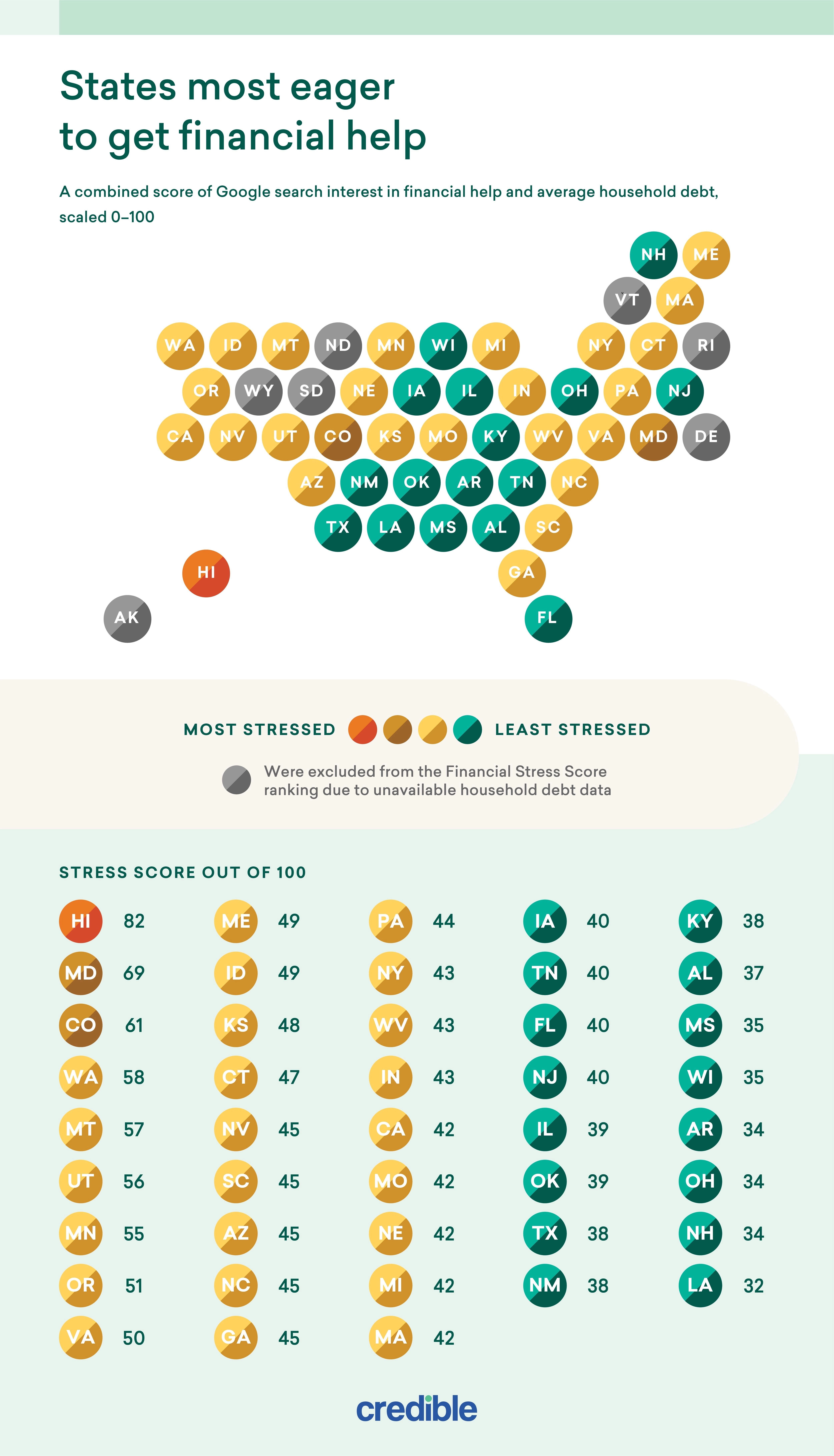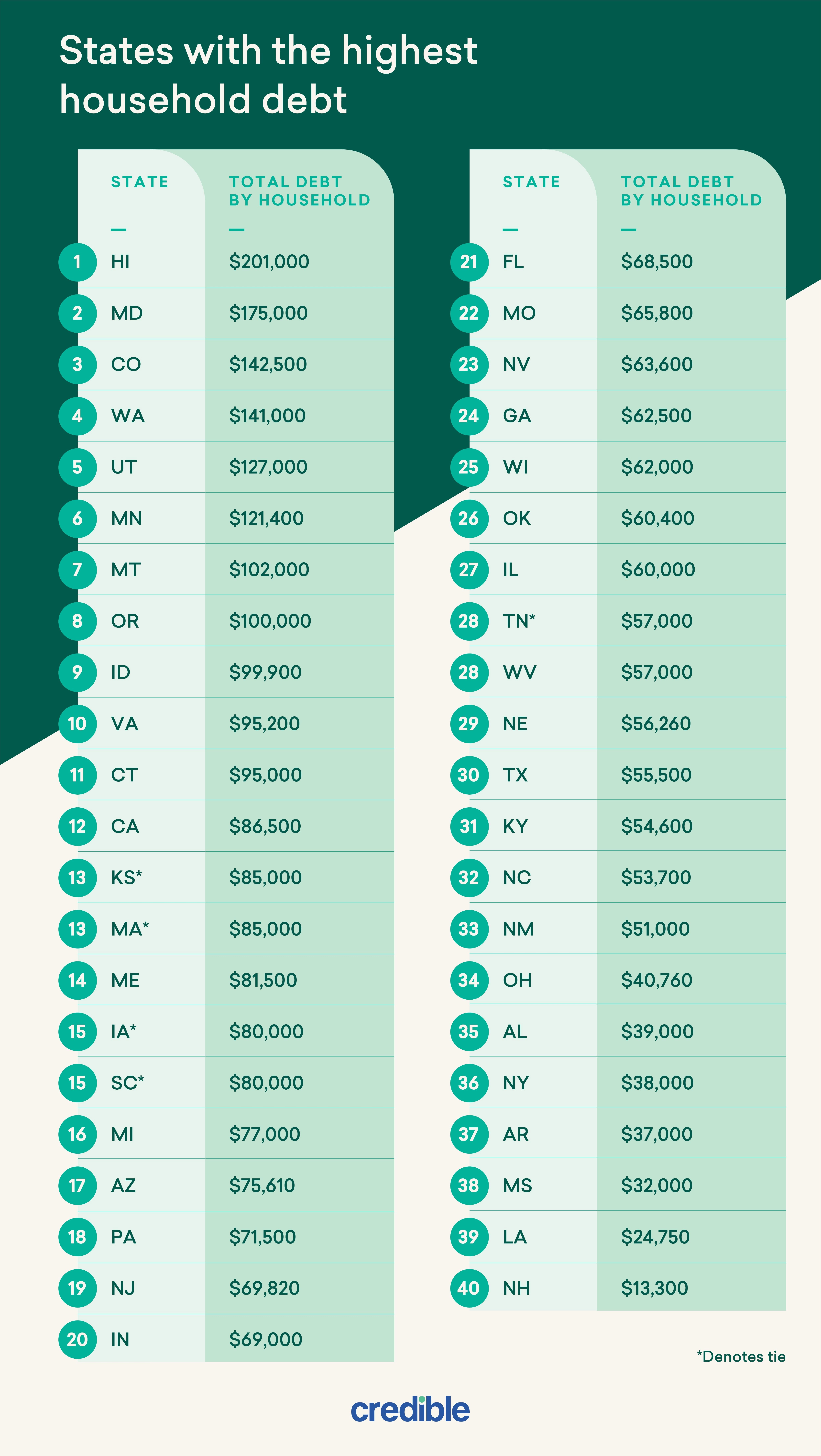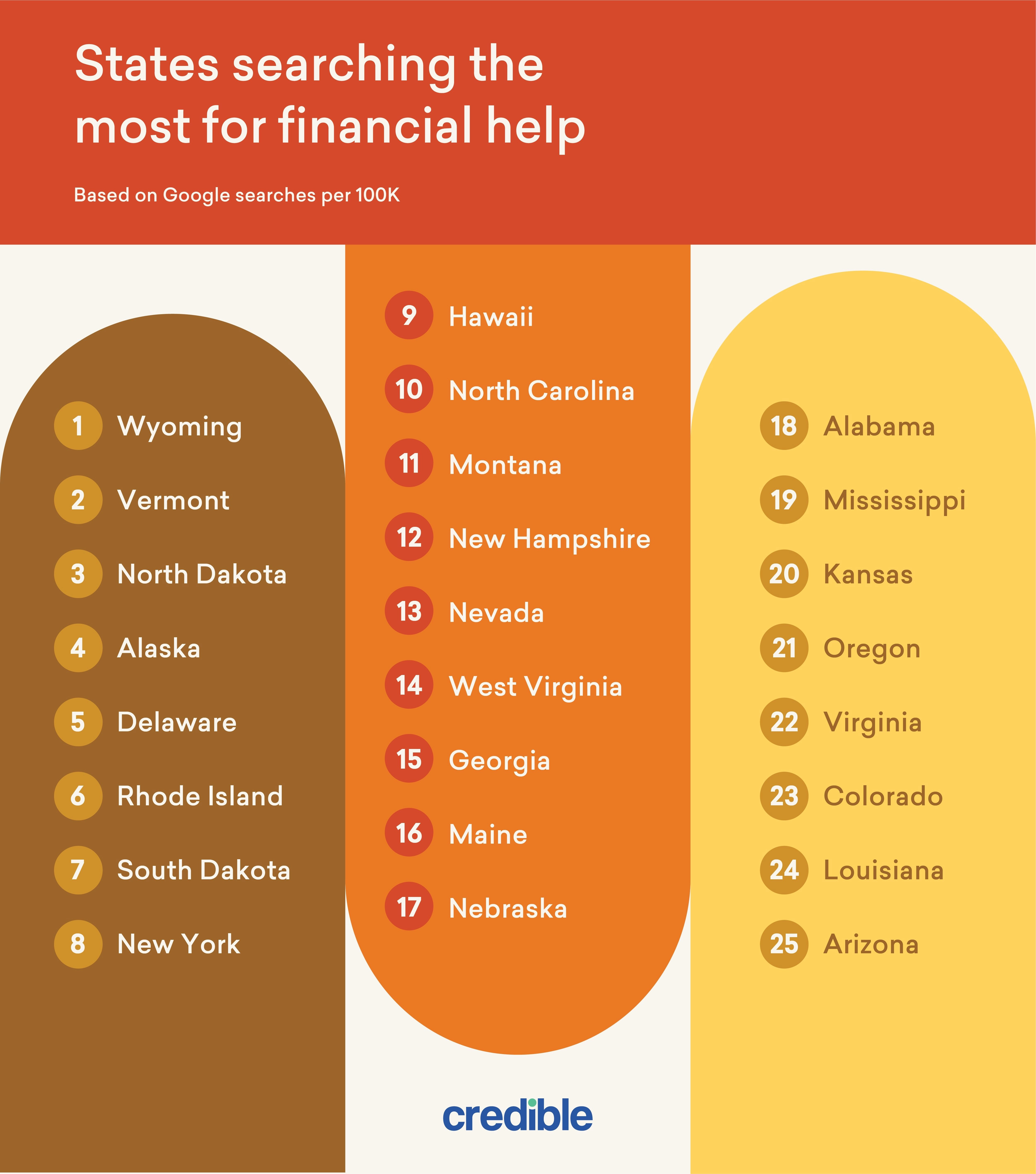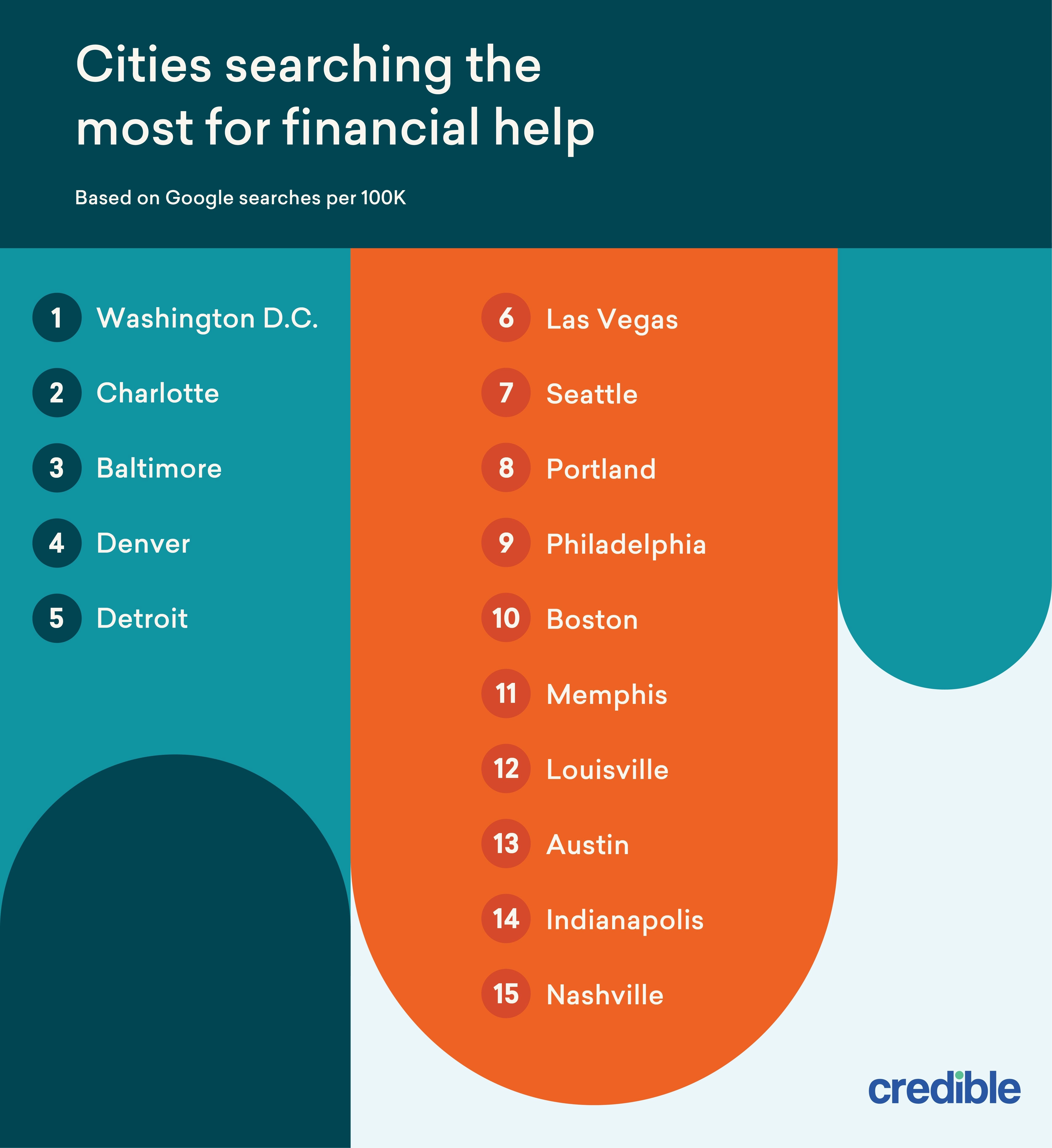Financial worries can be a major source of stress, and as money concerns arise, many Americans turn to the internet for guidance. From debt relief to emergency assistance to personal loans, online search behavior offers insights into where Americans are looking for help in real time.
To uncover where financial stress is hitting hardest, we analyzed Google search volume related to financial help across all 50 states and major U.S. cities. We then combined this data with average household debt figures to create a Financial Stress Score, revealing where Americans are not only burdened by debt but also actively seeking solutions.
States where financial stress is peaking in the U.S.

Hawaii tops the list as the state most eager to get financial help, with a Financial Stress Score of 82 out of 100. Maryland follows with a score of 69, while Colorado (61), Washington (58), and Montana (57) round out the top five. The ranking shows that financial stress is widespread across the country, with states of all sizes feeling financial pressure.
States leading the nation in household debt
Household debt levels vary across the country. Hawaii is the state with the highest average household debt, coming in at $201,000. Next is Maryland at $175,000, and Colorado with $142,500 per household.

Here are the top ten states with the highest average household debt:
- Hawaii — $201,000
- Maryland — $175,000
- Colorado — $142,500
- Washington — $141,000
- Utah — $127,000
- Minnesota — $121,400
- Montana — $102,000
- Oregon — $100,000
- Idaho — $99,900
- Virginia — $95,200
The states with the lowest average household debt are New Hampshire ($13,300), Louisiana ($24,750), Mississippi ($32,000), and Arkansas ($37,000).
Editor insight: “Too much debt not only impacts your pocketbook, but can also undermine your quality of life and even affect your health. A key step to combat debt is to learn about your options. If your credit is fair or better, you might pay off high-interest credit card debt with a lower-interest installment loan. If your credit has suffered, you could be eligible for a debt management plan through a certified non-profit credit counselor. Just be aware that plenty of companies stand to profit off your debt woes — avoid anything that sounds too good to be true or guarantees results.”
— Meredith Mangan, Senior Loans Editor, Credible
Related: 11 Ways To Pay Off Debt Fast
States where Americans are actively looking for financial help
To identify where Americans are most actively seeking help for their financial concerns, we analyzed Google search volume related to financial help across all 50 states and the 30 most populous U.S. cities.

The states where Americans are looking for financial help the most are Wyoming, Vermont, North Dakota, Alaska, and Delaware.
U.S. cities most eager for financial help

When it comes to cities with the most Google searches about financial help, Washington, D.C., ranks first. Charlotte, North Carolina and Baltimore, Maryland, round out the top three.
Other top cities looking for financial help include Denver, Detroit, Las Vegas, and Seattle.
Editor insight: “Debt doesn't discriminate — anyone can face financial challenges, especially if you've lost your job, have expensive medical bills, or have to provide for an adult child or parent. But resources are available. Contact a nonprofit credit counselor through the National Foundation for Credit Counseling, check your credit score to see if debt consolidation is an option, or explore DIY payoff strategies. The sooner you take action — even a small step — the more control you'll regain over your finances.”
— Meredith Mangan, Senior Loans Editor, Credible
Financial stress touches every corner of the country, from high-debt states like Hawaii and Maryland to smaller states like Vermont. If you're looking for financial resources, Credible is here to assist. If you're looking for help managing debt, check out our debt tracker. Our money plan tool can also help you manage your finances for years to come.
Methodology
To uncover where financial stress is hitting hardest, we analyzed more than 3,500 Google search terms related to financial assistance across all 50 states and major U.S. cities from June 2024 to July 2025. We took the average number of monthly searches for each state and city and calculated the searches per 100,000 residents.
We paired this with average household debt data by state from the U.S. Census Bureau. We then created a Financial Stress Score on a 0 to 100 scale by equally weighting each factor and normalizing scores relative to the highest and lowest values in the dataset.
For media inquiries, contact [email protected].
Fair Use
When using this data and research, please attribute by linking to this study and citing Credible.